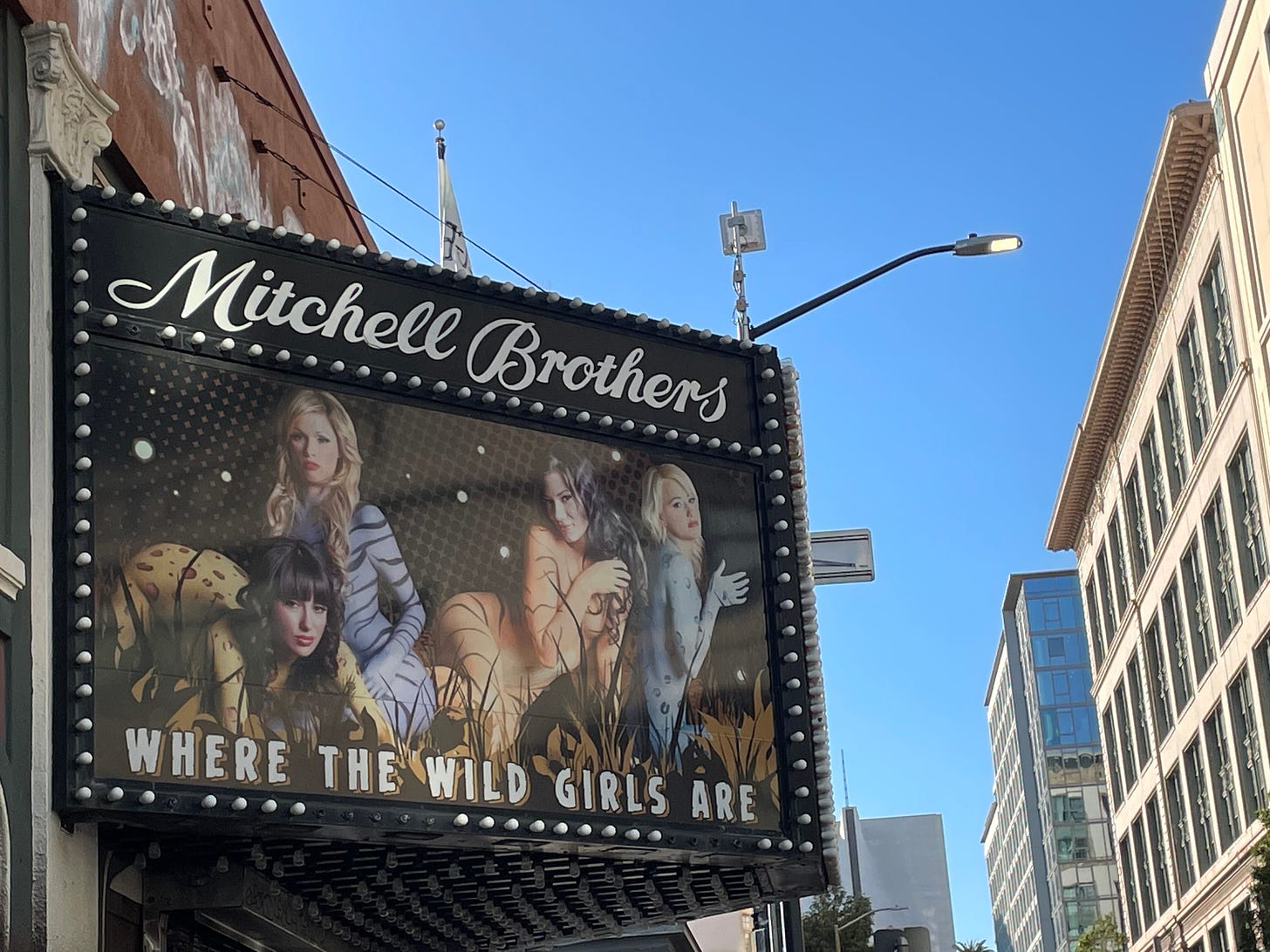Why Do People Like Pornography?
The truth is many people who use it aren't sure--and sometimes they don't. Here's my conversation with critic Elaine Blair about Polly Barton's "Porn: An Oral History"

Like many of you, I am sure, I often allow my subscriptions to pile up into an ungainly, precarious tower on my bedside table, and I came late to Elaine Blair’s review essay, “Uninhibited Questions” (New York Review of Books, December 21 2023). A review of British translator Polly Barton’s Porn: An Oral History (Fitzcarraldo, 2023), the essay addressed an issue I am wrestling with in a book about late twentieth-century radical feminism: How do consumers of porn who are not unquestioningly enthusiastic, or unstintingly opposed (in other words, most people) understand their encounters with the genre?
I found Blair’s excavation of the pornography debate bracing, complex, and courageous in its ambiguities, so I got in touch with her to extend the conversation.
Most of this interview, the sound file (which is slightly different—I edited the transcript for clarity and accuracy), and a link to the full article are below the jump. If you want full access, please:
Claire Potter: Elaine, when Polly Barton's book, Porn: An Oral History, ended up in your hands, what made you interested in it?
Elaine Blair: It was just a really interesting set of materials that she was providing. She spoke semi-formally with 19 friends and acquaintances about their experience, use of and opinions about porn; the conversations are only lightly edited. So, you have this trove of unscientific, uncomprehensive, but still very interesting raw material about people's experiences.
And I just want to tell listeners, although this is called an oral history, it's not strictly speaking, an oral history, which is its own field.
Right. It's a series of conversations.
One of the things that really struck me from your essay is that pleasure and danger are often paired when it comes to pornography. But this was like—pleasure and anxiety. Can you talk about that a little bit?
Yes. People were fairly forthcoming and ready to talk about their likes and dislikes in a narrow sense. That is what they like to view and what they definitely didn't like about mainstream porn sites or other venues.
But there was also something muted about the discussion. No one was categorically against porn by any means. Most people had some things that they disliked, especially about the major porn sites like Pornhub or X-Hamster. And yet they seemed sort of suspended in a state of uncertainty, hesitancy, maybe mild disapproval, of a lot of what they saw, while also clearly valuing and continuing to visit certain kinds of sites and materials.
Another thing that is kind of under-thought or under-expressed is just the idea of valuing access to porn generally. Almost everyone seemed to use it and have certain things that they liked about it, but I believe no one actually comes out and says, Well, I'm really glad that I have access to this, even if I dislike some of the things that I see.
This is what's always been interesting to me about this conversation. I came into feminism in the 1970s and 1980s, when it was considered absolutely wrong in certain circles to ever say you didn't love porn. And then in other circles, it was absolutely wrong to say you would ever put up with porn.
It was this very bifurcated conversation that we rarely have about other things like cars or Victorian literature. Nobody ever says you can't like a certain kind of breakfast cereal, and if you do, that's about your character.
What is it about porn that makes the conversation about it so fraught?
Keep reading with a 7-day free trial
Subscribe to Political Junkie to keep reading this post and get 7 days of free access to the full post archives.



